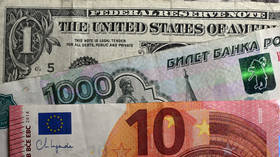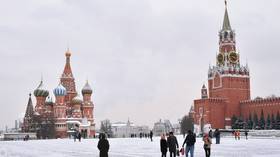EU won’t seize Russia’s assets – Reuters

The European Union is “unlikely” to confiscate the Russian Central Bank funds that are currently frozen due to Ukraine-related sanctions, Reuters reported on Tuesday. There is no agreement among the members for the risky move, senior bloc officials told the agency.
The US and its allies froze an estimated $300 billion of Russian state assets in 2022, citing the Ukraine conflict. Kiev has repeatedly called for the West to seize the funds and hand them over to Ukraine, even more so in recent months as financial and military aid from Washington and Brussels has dried up.
”Confiscation of the capital of the Russian assets is not going to happen. There is no agreement on this among EU member states,” said one senior EU official, described as having insight into the talks on the matter.
Such a confiscation of sovereign assets would be unprecedented. It could also scare off investors from around the world, concerned that their money would not be safe in the EU.
”We need to be very prudent with that proposition,” Belgian Finance Minister Vincent van Peteghem told reporters on Tuesday. “I think that it’s important that what can come on the table should be legally sound and we should avoid any impact on financial stability.”
Luxembourgish Foreign Minister Xavier Bettel told Reuters he was “very cautious” about seizing Russian assets. “Imagine if we decide politically to give billions to Ukraine. And in six months we have a judicial decision saying we are not allowed to give it to them. Who will [we] pay then?” Bettel said.
Another concern for the bloc is that most of the currently frozen Russian assets – about $200 billion – are with the Belgium-based clearing house Euroclear.
”The EU cannot bail out Euroclear,” one senior official said. “Euroclear manages trillions and its bankruptcy would be far more than the budget of the EU. We have to balance risk and profit.”
Russia has repeatedly warned the US and its allies that a seizure of its sovereign assets would amount to “theft” that would violate international law, undermine Western reserve currencies and disrupt the global financial system. Moscow also has access to $288 billion in Western assets it has threatened to confiscate in reprisal – much of it belonging to Euroclear.
The frozen Russian assets are still generating interest, and the European Commission proposed last month to seize those funds and direct them to Ukraine, leaving the principal intact. According to officials who spoke to Reuters, this could amount to as much as €17 billion ($18.5 billion) over the next four years. The plan to send Kiev a total of €50 billion ($54.25 billion) in EU funding through 2027 has been held up by Hungary.













